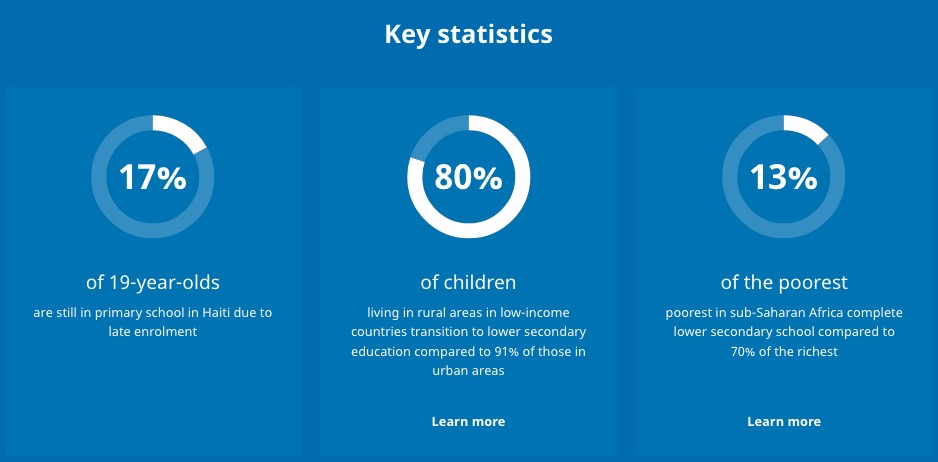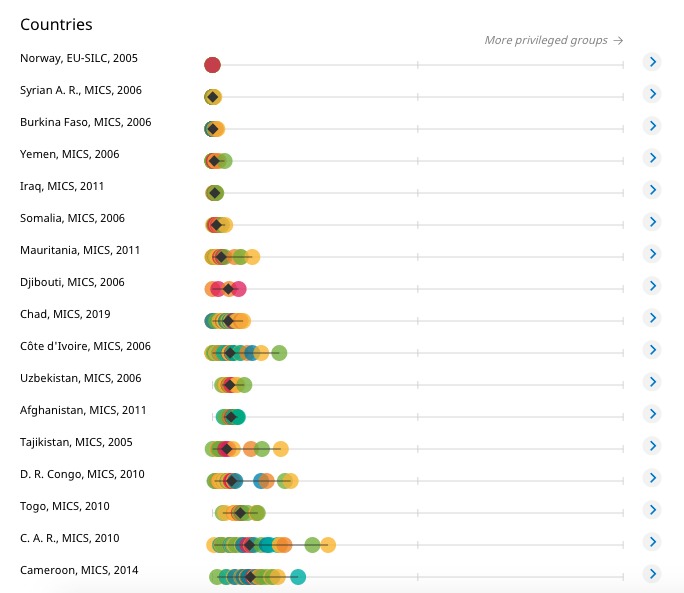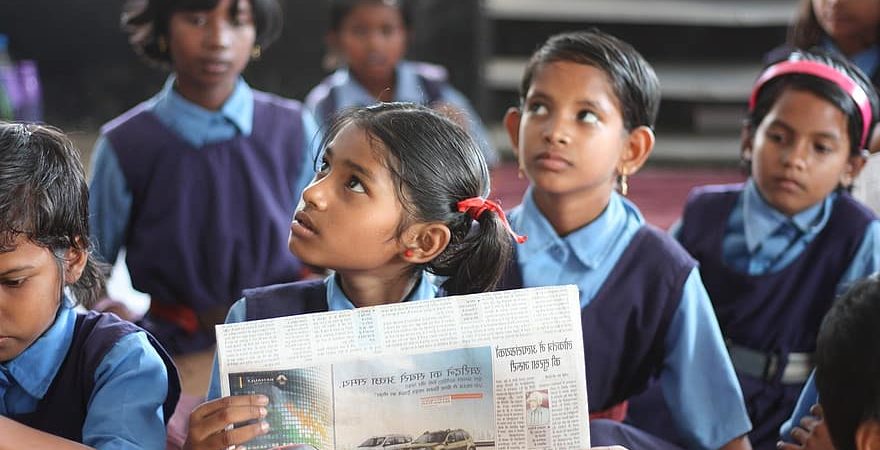Education is vital. We can all agree on this but where we fall out of the agreement is why exactly education is so necessary for equality. Without education, there can be no progress, no development, and no improvement.
In today’s world, we are ever more aware of the issues surrounding sexism, racism, and inequality, allowing for a greater understanding of the importance of educating people to avoid these biases occurring in the first place.
What is Educational Equality and why is it necessary?
Equality isn’t always so simple. Some may assume, for example, that educational equality is as simple as providing children with the same resources. In reality, however, there’s a lot more to it than this. We will check what governments are doing to achieve this goal. What actions they are taking to advance the cause of equality? Education is crucial because it’s a toolkit for success:
- With literacy and numeracy comes confidence, with which comes self-respect. And by having self-respect, you can respect others, their accomplishments, and their cultures.
- Education is the fundamental tool for achieving social, economic, and civil rights – something which all societies strive to achieve.
Educational Inequality is usually defined as the unequal distribution of educational resources among different groups in society. The situation becomes serious when it starts influencing how people live their lives. For example, children will be less likely to go to school if they are not healthy, or educated because other things are more urgent in their life.
Categorical Educational Inequality
Categorical Education Inequality is especially apparent when comparing minority/low-income schools with majority/high-income schools. Are better-off students systematically favored in getting ahead? There are three plausible conditions:
- Higher-income parents can spend more time and money on private tutoring, school trips, and home study materials to give their children better opportunities. Therefore, better-off students have an advantage due to access to better schools, computers, technology, etc. (the so-called opportunity gap).
- Low-income schools lack the resources to educate their students. Therefore their students tend to have worse educational outcomes.
- Although the public school system is a government-funded program to allow all students an equal chance at a good education, this is not the case for most schools across third world countries – see UNESCO statistics below:

How Educational Inequality is fueling global issues
Educational inequality is a major global crisis. It has played a role in economic problems, amplified the political deadlock, exacerbated the environmental predicament, and threatens to worsen the human rights crisis. If equality in education is not addressed directly, these crises will only deepen because:
- Educational Inequality is also about race and gender. Those who are less privileged are condemned to poverty and unemployment because of a lack of quality educational resources.
- Without a sound education, people have less knowledge of the world around them or the issues facing their communities. They are less likely to vote or to pay attention to politics. This leaves them vulnerable to manipulation by those who represent narrow interests and promote fear, hatred, and violence. The result is an erosion of democratic values and an increase in authoritarianism.
- Without correction, human rights abuses will continue due to a lack of legal representation among those with no or low education levels.
- Poverty, unemployment, crimes, and health issues: A lack of education and skills forces children into poverty because they can’t get jobs or start a business. It also leaves them without hope and is one of the reasons for unemployment, lower life expectancy, malnutrition, a higher chance of chronic diseases, and crime rates.
- Limited opportunities: The most significant issue is that lack of education reduces the opportunities for people to have a decent life. Limited options increase the division of social classes, lower social mobility, and reduce the ability to build networks and social contacts. Students in poor countries also spend a lot of time working to support their families rather than focusing on their school work. These factors also worsen the upbringing of coming generations.
- Extremism: Inequality can also lead to increased violence, racism, gender bias, and extremism, which causes further economic and democratic challenges.
- Inability to survive pandemics: Unlike developed nations after COVID, underdeveloped countries are stuck in their unstable economic cycles. Inequality causes a lack of awareness and online educational resources, lower acceptance of preventive measures, and unaffordable vaccines, for example. According to the United Nations, “Before the coronavirus crisis, projections showed that more than 200 million children would be out of school, and only 60 percent of young people would be completing upper secondary education in 2030”.
- Unawareness of technological advancements: The world is becoming more tech-savvy, while students in underdeveloped countries remain unaware of the latest technological achievements as well as unable to implement them. This also widens the education gap between countries.
- Gender inequality in education: In general, developing countries compromise over funds allocation for women’s education to manage their depletion of national income. As such, they consider women less efficient and productive than men. Meanwhile, many parents do not prefer sending their daughters to school because they do not think that women can contribute equally to men in the country’s development. However, if we have to overcome this, there should be an increase in funding and scholarships for women’s education.
- Environmental crises: People are usually less aware of the harmful emissions produced in their surroundings and are therefore less prepared to deal with increased pollution levels. This also affects climate change. The less educated the children, the more likely they are to contribute to climate change as adults. This is because education is not just about learning facts and skills but also about recognizing problems and applying knowledge in innovative ways.
- A child who has dropped out of school will generally contribute less to society than a child who has completed secondary school. A child who has completed secondary school will contribute less than a child who went to university. This difference increases over time because those with higher levels of education tend to be more open-minded, flexible thinkers and are therefore better able to adapt to changing environmental conditions.
Equality in education is therefore essential for addressing international issues including economic inequality, climate change, social deprivation, and access to healthcare. Many children in poor regions are deprived of education (see chart below) which is the only way out of poverty.

Proposed Solutions
The United Nations Development Program says that access to education is a human right, and should be individually accessible and available to all by 2030. It demands:
- International collaborations to ensure that every child has the same quality education and to develop joint curricula and academic programs. The quality of teaching methodologies should not be compromised and includes providing financial assistance and tools for equal access.
- Running campaigns to discourage race, gender, and ethnicity differences, arranging more seminars to reach low-income groups, and providing adequate financial assistance, training, and part-time jobs for sole earners.
- Modifying scholarship criteria to better support deserving students who cannot afford university due to language tests and low grades.
- Increasing the minimum wage so that sole breadwinners can afford quality education for their children.
- Schools should bear transportation costs and offer free grants to deserving kids from low-income families.
- Giving more attention to slum-side schools by updating and implementing new techniques and resources.
- Allowing students to learn in their own language with no enforcement of international languages and offering part-time courses in academies and community colleges in other languages.
Resolving educational inequality has many benefits for the wider society. Allowing children from disadvantaged backgrounds to get an education will help them find better jobs with higher salaries, improving their quality of life, and making them more productive members of society. It decreases the likelihood of conflict and increases access to health care, stable economic growth, and unlimited opportunities.
Conclusion:
It’s been said that great minds start out as small ones. To level the playing field, we need to focus on best educating our next generation of innovators and leaders, both from an individual and a societal standpoint. If we want equality to become a reality, it will be up to us to ensure that equality is at the forefront of our education system.
References:
Environmental Conscience: 42 Causes, Effects & Solutions for a Lack of Education – E&C (environmental-conscience.com)
School of Education Online Programs: What the U.S. Education System Needs to Reduce Inequality | American University
Educational Inequality: Solutions | Educational Inequality (wordpress.com)
Giving Compass: Seven Solutions for Education Inequality · Giving Compass
Science.org: Polarization under rising inequality and economic decline
Research Gate: Inequality and Economic Growth
University of Munich: pdf (uni-muenchen.de)
Research Gate: Effects-of-inequality-and-poverty-vs-teachers-and-schooling-on-Americas-youth.pdf (researchgate.net)
United Nations: Education as the Pathway towards Gender Equality
United Nations Sustainable Development Goals – Education
This article has been edited in line with our guidelines
Gerald Nelson is a freelance academic essay writer at perfectessaywriting.com who also works with several educational and human rights organizations.
The MAHB Blog is a venture of the Millennium Alliance for Humanity and the Biosphere. Questions should be directed to joan@mahbonline.org
The views and opinions expressed through the MAHB Website are those of the contributing authors and do not necessarily reflect an official position of the MAHB. The MAHB aims to share a range of perspectives and welcomes the discussions that they prompt.
